For Online Business Builders & Network Marketers Only
100% FREE MASTERCLASS
Use a Proven System to Bring In High-Quality Leads and Sales Without Confusing Tech Setups or Complex Funnels

Use a Proven System to Bring In High-Quality Leads and Sales Without Confusing Tech Setups or Complex Funnels
Wednesday, April 23rd, 5p PST / 7p CST / 8p EST

Learn the Best Online Formula to Find Your Target Audience & Streamline Your Marketing Strategy So You Can Finally Talk to the People Who Want to Do Business With You!
7:35 PM EDT
Next Session Starts In:
0
days
0
hours
0
minutes
0
seconds
Enter your info below to Join Now, or...
Use the drop-down to choose a time.
(Optional) I Would Like To Receive an SMS Text Alert Before The Event Starts
In this Limited-Time Masterclass, you will learn...
- Why your Facebook & IG posts aren’t working (and what to do about it).
- About creating the right marketing content that gets engagement & attracts ready-to-buy leads.
- Ways to position yourself as the go-to expert so people view you as an authority in your niche.
- How people just like you are Creating Messages that Matter and Irresistible Offers that get results.
- The Framework for Building a Business That Grows Even When You're Not Glued to Social Media.
- BONUS: The Underground AI Secrets to Making Money Online That No One Else is Talking About!
🎁 FREE GIFT: All attendees will get my Custom GPT that Instantly Creates High Converting Content for Any Platform — So You Can Focus On Closing Sales, Not Creating Social Posts! ($497 Value)

Want to see what it's like working with me...???


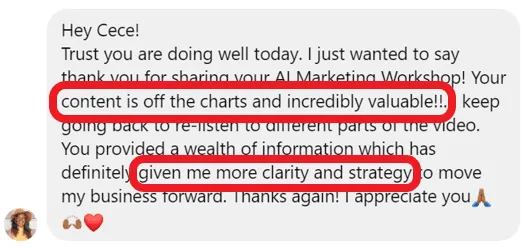
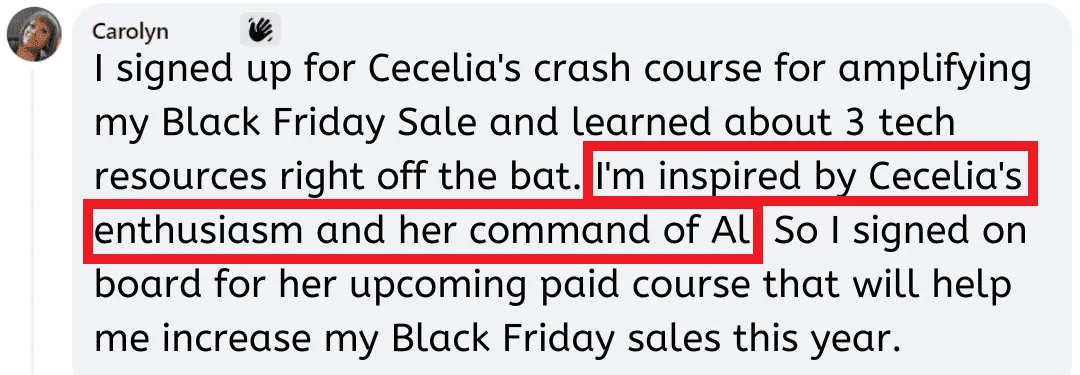

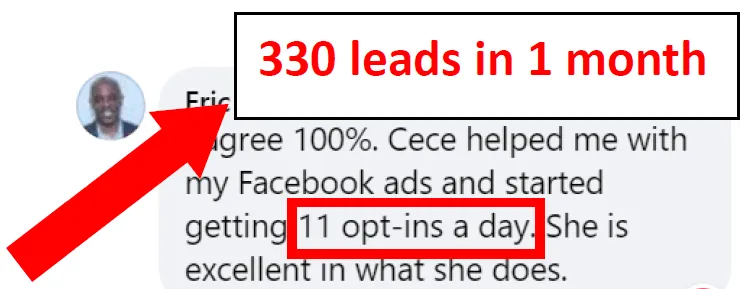


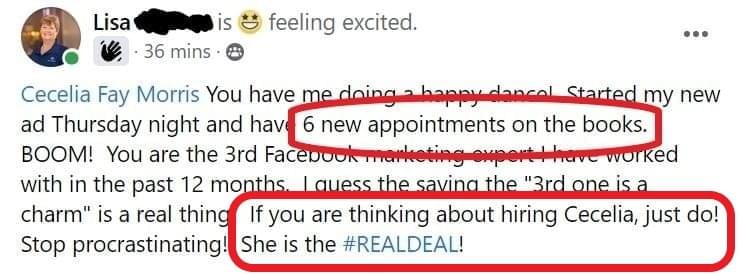
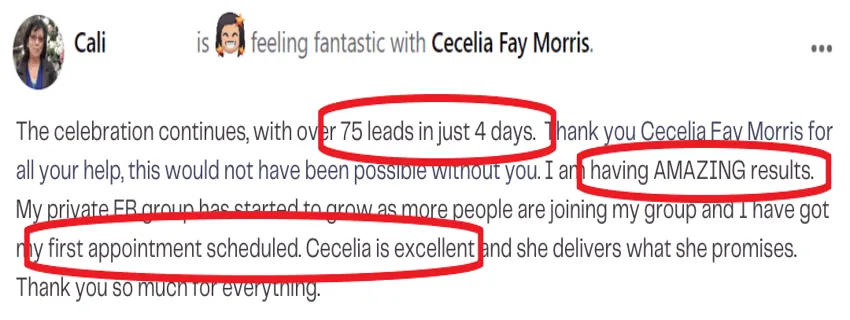

📌This Masterclass is for You If…
- You’re tired of cold messaging & getting ghosted.
- You’re sick of creating content that gets crickets, not engagement.
- You’re struggling to find quality leads & make sales.
- You want a simple, scalable marketing system to grow your business.
- You need a proven strategy that actually works in 2025.
Still have questions? We have some answers...
Who is this class for?
Ambitious entrepreneurs, online business builders, and network marketers who dream of breaking free from frustrating marketing failures and finally achieving the success you desire.
Who is this class NOT for?
Butterflies and people who have shiny object syndrome. This class is not something to be added to your collection of courses, books, and videos that you have never started or completed. If you are curious about business but not serious, please don't waste your time.
Will there be a replay?
This is a LIVE training. Even though we record the masterclass for our own training and improvements, we do not plan to offer the replay or recording to attendees.
How does this masterclass work?
We will start promptly on Wednesday, May 28th, 5p PST / 6p CST / 7p EST. The training will last about 90 minutes including time for Q&A at the end.
How do I know if ChatGPT can really help my business?
Skepticism is totally natural! I was skeptical too before I started testing ChatGPT myself. I've created entire automated marketing systems in a fraction of the time. The core principles I teach work for any business that sells to customers and needs marketing.
What if I don't know how to use ChatGPT?
No prior experience is necessary. The program is structured to accommodate participants with varying levels of familiarity with AI, making it accessible for beginners and beneficial for those with some experience.

I’m Cecelia, the Owner and Founder of Taking Charge, Inc. a Digital Marketing Agency. I'm also the Digital Media Marketing Manager for Thriving Women Network, Inc., an internet broadcast company on e360tv.com
I have helped over 300 network marketers and online business builders stay current and relevant on social media to generate hundreds of thousands of qualified leads, clients, customers, and sales without relying on only organic marketing and the ever-changing algorithms.
Let me show you the same MAGIC Marketing Method that allows me and my clients to enjoy the freedom and autonomy that comes with having a successful online business in almost any niche.
Imagine waking up every day knowing that your brand is growing, your influence is expanding, and your target audience is looking for YOU!

If you show up for the training, have your camera on, and ask at least 1 question you can request a full refund NO QUESTIONS ASKED if you feel you didn't get any value from the experience.
And you can keep the FREE GIFTS!
Just email our team at [email protected] and you will have your money back in your bank account within 7-10 business days based on your financial institution.
© All Rights Reserved | Success With Cecelia | Terms & Conditions | Privacy Policy